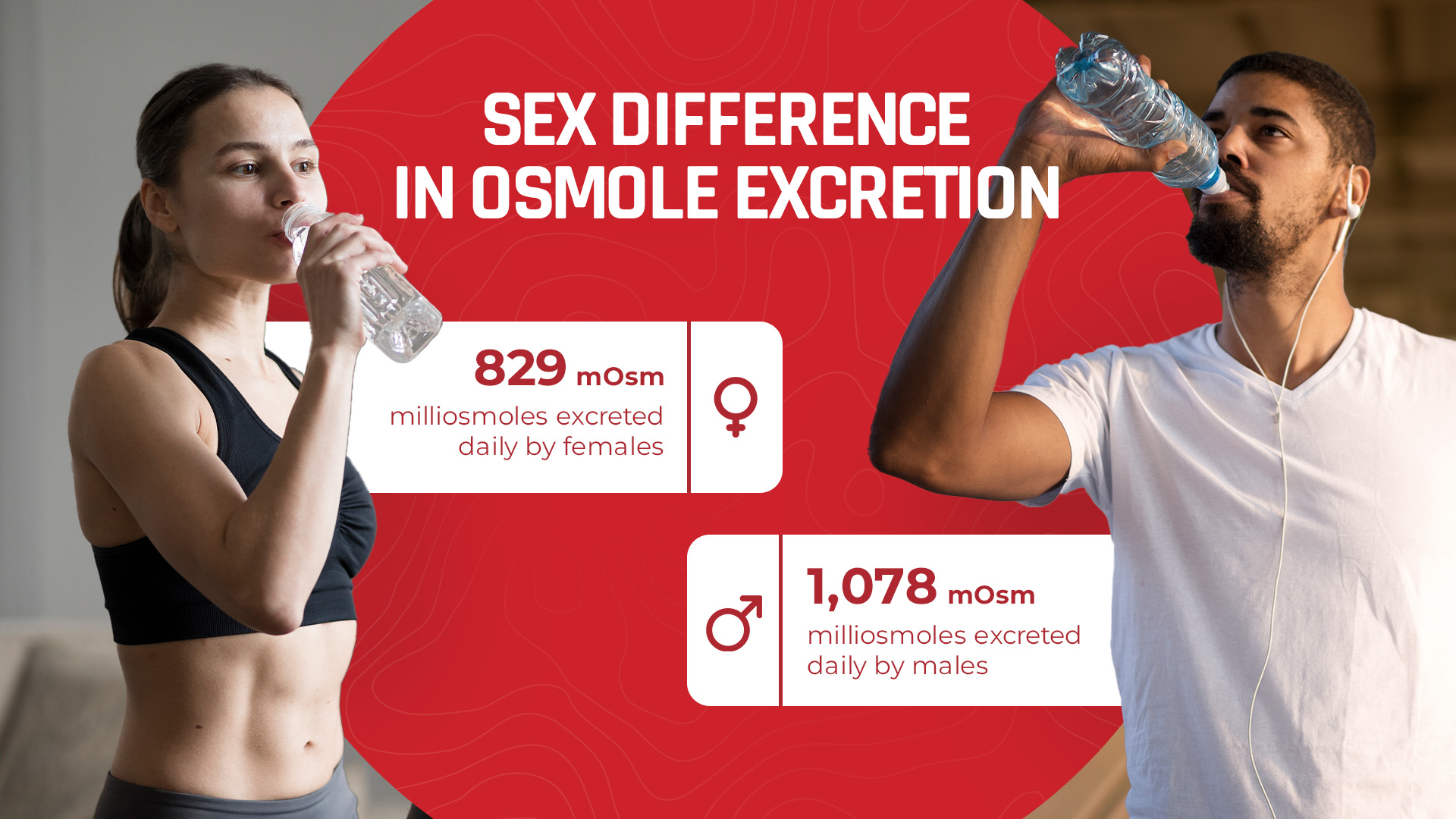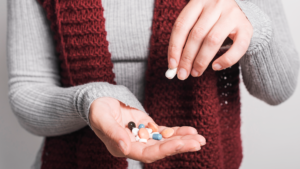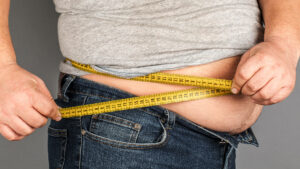Published: October 1, 2023 | 4 mins read
Why Your Doctor Recommends Water for Kidney Stones: Urine Osmolality Explained
If you’ve had kidney stones, your doctor probably tells you to drink more water. And, if you’re like most people, you blow this information off. However, there are specific reasons why drinking more water and staying hydrated can help reduce your risk of kidney stones. You’ve just not been educated on the “why.”
This article will explore “why” proper hydration matters from a physiological standpoint. In that regard, we will explain to you its connection to urine osmolality.
WHAT IS “OSMOLALITY”?
Osmolality refers to the measurement of dissolved particles in a liquid solution. For our purposes, the liquid solution is blood and urine. We want to count the number of osmoles (particles) per kilogram to understand kidney stone risk better because the more particulate in your urine, the greater the chance for crystalization and stone formation.
To help you wrap your head around this, let’s talk about a few known substances that osmolality can represent. You’ll likely recognize the following:
- Urea (a waste product from the liver)
- Glucose (aka sugar)
- Electrolytes (electrically charged minerals that help control your body’s fluids like sodium, potassium, and chloride)
Urine tests evaluate urine osmolality. The average person should have a urine osmolality greater than 850 milliosmoles per kilogram of water (>850 mOsm/kg) within 12-14 hours of fluid restriction. However, these values may vary depending on the measurements used by your lab.
There’s also serum osmolality, and this is typically done by having blood drawn. Normal serum osmolality ranges from 275-295 mOsm/kg of water. Understanding the serum side of osmolality is vital because when blood osmolality increases (more particles), a healthy body will automatically release antidiuretic hormones (ADH).
ADH will cause the kidney to reabsorb water, thus creating more concentrated urine, which can spell problems for people who suffer from kidney stones. On the flip side, the more water a person drinks, the more the blood and urine dilute, creating less concentrated urine. The impact of proper hydration on osmolality is why your doctor tells people suffering from kidney stones to drink more water.
If you’re wondering how much water you should drink daily, the American Urological Association has a recommendation. They suggest enough water to generate between 2-2.5L of urine daily. This urine volume means drinking around 3L (~96oz) of water daily for most people. For more information on this, check out our blog on hydration.
GENDER DIFFERENCES
Studies found that males have a higher average urine osmolality when compared to females. Osmole production in males is around 1,078 mOsm/day compared to women, which is just 829 mOsm/day. More significant electrolytes and urea in men’s blood contribute to this gap.

Additionally, according to research, body weight affects the urine osmolality of a person. The heavier the person, the higher urine osmolality will be, thus making the urine more concentrated in overweight and obese individuals. This data also further explains the difference between men and women.
Men also consume more salt and drink less water than women. Since water intake is low, urine volume is also lower among males. As a result, the osmole particles are not released from the body. These factors are why men generally have a higher risk for kidney stones.
URINE OSMOLALITY AND DIET
Diet plays a significant role in kidney stone formation because the most common type (calcium oxalate) is directly linked to the foods we eat. Therefore, through the lens of urine osmolality, the more concentrated your urine, the higher your risk for kidney stones. Your risk increases because the higher the amount of stone-forming particles in your urine (high osmolality), the higher the likelihood of them binding together to crystallize. All it takes is time.
THE BOTTOM LINE
It’s easy to get lost in all the details about diet, gender differences, and technical babble. However, by staying consistently hydrated by drinking more water throughout your day, you will pass more urine and reduce your risk for kidney stones. The more urine you pass, the less concentrated your urine (lower osmolality) and the less time you allow for stone-forming elements, such as calcium, oxalate, phosphate, uric acid, etc., to bind together to form kidney stones.
If you are serious about stopping kidney stones, join our Coaching Program and we will formulate a personalized prevention plan for you.
References




How do you need to decide the water consumption? Drink the 3 liters in one cup increments throughout the day? Or more in the morning, less in the evening? Does it matter how often at all, or how much at once?
There’s no one-size-fits-all answer to water consumption because it can vary depending on factors like your activity level, climate, and personal preferences. Generally, spreading your water intake throughout the day is a good idea to stay hydrated consistently. You can start with a glass in the morning and then drink regularly throughout the day. 🙂 Our blog/video on hydration will be valuable to you to achieve this. You Can check it out here: http://www.stone-relief.com/blogs/education/hydration/